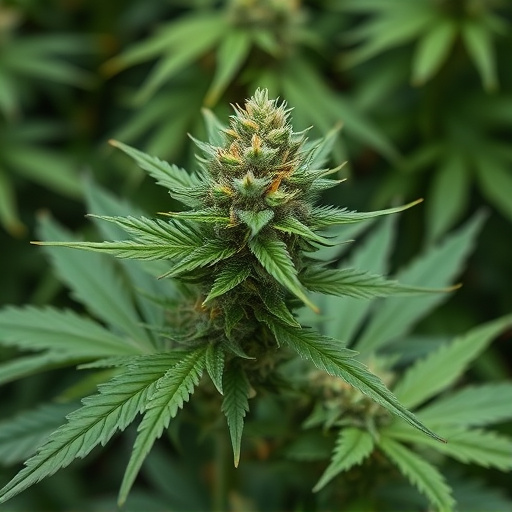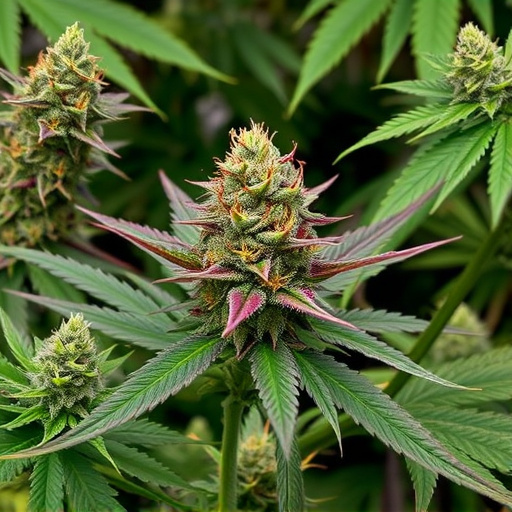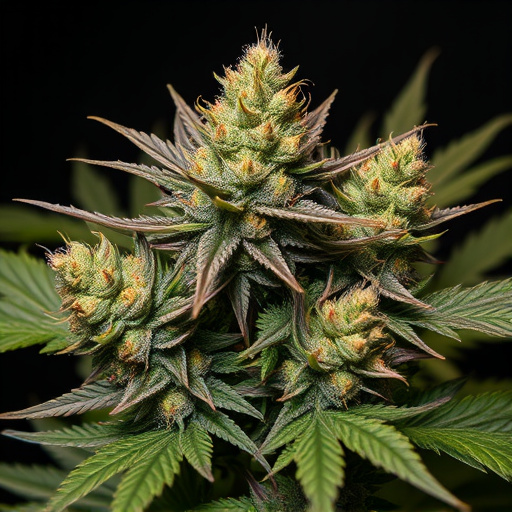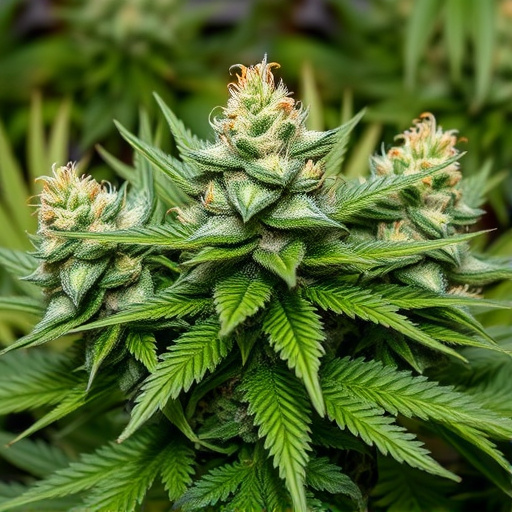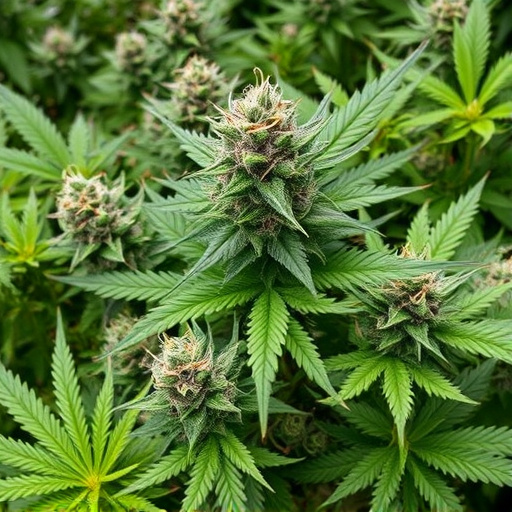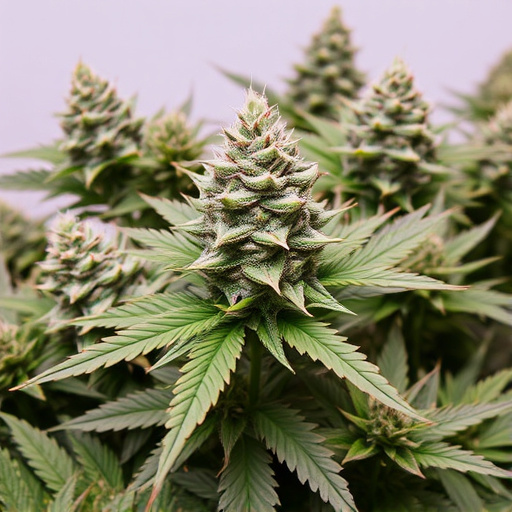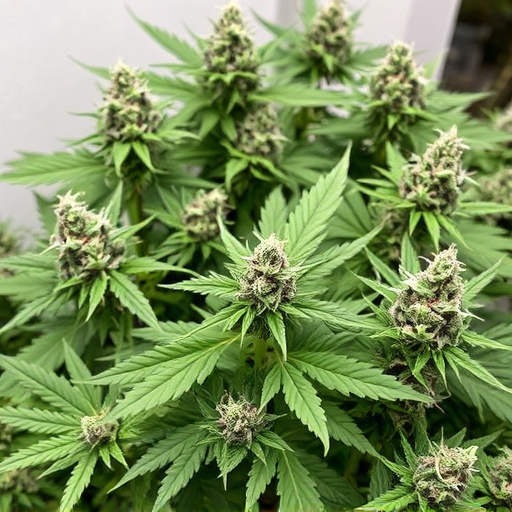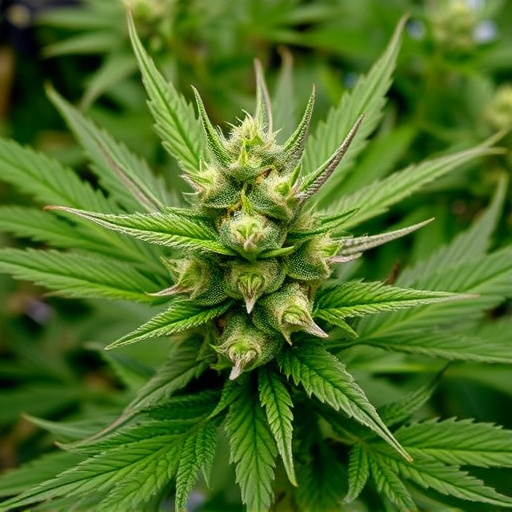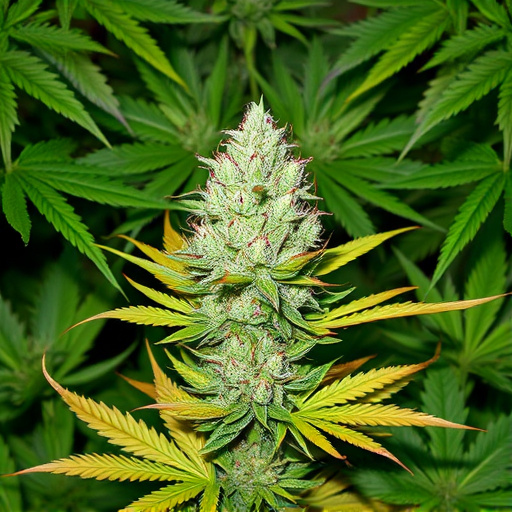Medical marijuana strains' effectiveness stems from their interaction with our bodies' endocannabinoid system (ECS). Full-spectrum cannabinoids in natural plants offer synergy through the entourage effect, enhancing therapeutic benefits. Isolated cannabinoid extracts provide precise relief by focusing on single compounds like THC or CBD for specific symptoms, such as chronic pain or anxiety, allowing healthcare providers to prescribe tailored dosing.
In the realm of medical marijuana, understanding cannabinoids is key to navigating the diverse landscape of treatment options. This article delves into the comparative analysis of full-spectrum vs. isolated cannabinoids, essential elements in crafting effective medical marijuana strains. By exploring the intricacies of these compounds, from the synergistic effects of full-spectrum to the targeted relief of isolation, patients can make informed decisions tailored to their specific needs.
- Understanding Cannabinoids: The Building Blocks of Medical Marijuana Strains
- Full-Spectrum Cannabinoids: Unlocking the Potential of Entourage Effect
- Isolated Cannabinoids: Focused Relief and Individualized Treatment
Understanding Cannabinoids: The Building Blocks of Medical Marijuana Strains
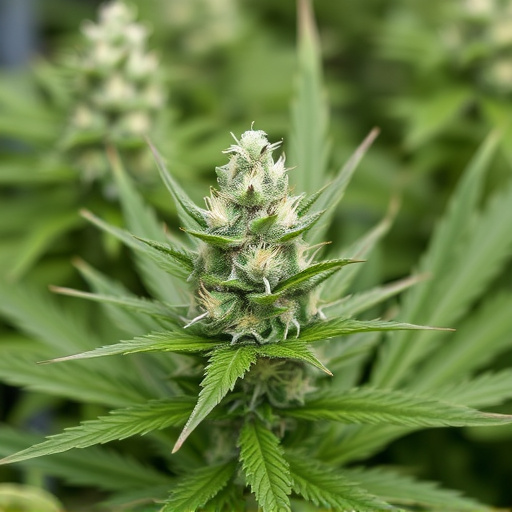
Cannabinoids are the building blocks of medical marijuana strains, each with unique properties that contribute to the plant’s therapeutic effects. These chemical compounds interact with our bodies’ endocannabinoid system (ECS), playing a crucial role in maintaining homeostasis, or balance. The ECS influences various physiological processes, including pain perception, appetite, mood, and memory.
Understanding cannabinoids is essential when navigating the world of medical marijuana strains. Different strains offer varying ratios of major cannabinoids like THC (tetrahydrocannabinol) and CBD (cannabidiol). Full-spectrum products contain a range of cannabinoids present in the plant, mirroring its natural composition. In contrast, isolated cannabinoids are single compounds extracted from the plant, offering targeted effects without the full spectrum’s complexity.
Full-Spectrum Cannabinoids: Unlocking the Potential of Entourage Effect

Full-spectrum cannabinoids, found in their natural state within the cannabis plant, offer a unique advantage over isolated cannabinoids. When cannabis flowers are harvested and processed, they contain numerous compounds besides THC (tetrahydrocannabinol) and CBD (cannabidiol), collectively known as the entourage effect. This synergistic interaction among various cannabinoids, terpenes, and flavonoids may produce more pronounced therapeutic effects than any single compound alone.
The entourage effect suggests that full-spectrum cannabinoids act together to enhance or modulate each other’s activity in the body. For instance, while CBD is known for its anti-inflammatory properties, when combined with THC, it may amplify its effectiveness and provide additional benefits. Medical marijuana strains high in full-spectrum cannabinoids are increasingly sought after due to this potential synergy. Understanding the complex interplay between these compounds unlocks a deeper potential for cannabis as a medicine, offering more comprehensive relief for various conditions without compromising safety or efficacy.
Isolated Cannabinoids: Focused Relief and Individualized Treatment
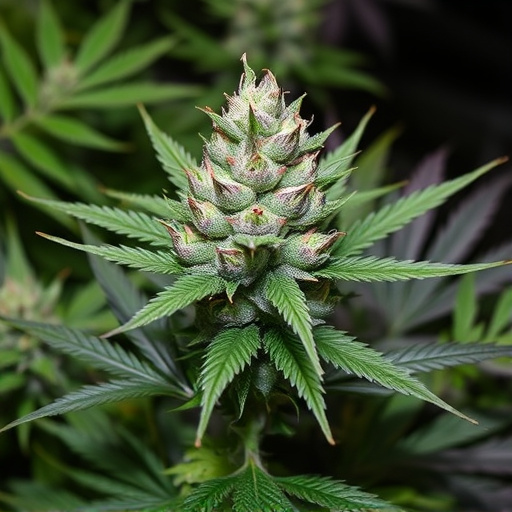
Isolated Cannabinoids offer a unique approach to medical marijuana treatment by providing focused relief tailored to individual needs. Unlike full-spectrum extracts, which contain a wide range of cannabinoids and terpenes, isolated cannabinoids are purified to contain only one specific cannabinoid, such as THC or CBD. This purity allows for precise dosing and targeted treatment of particular symptoms. For example, patients experiencing severe chronic pain might opt for CBD-isolates, known for its anti-inflammatory properties, while those seeking relief from anxiety could choose THC-isolates, renowned for its calming effects.
This individualized treatment approach is particularly beneficial for medical marijuana patients who require specific cannabinoid profiles to manage their conditions effectively. It enables healthcare providers to prescribe exactly what the patient needs, ensuring optimal results and minimizing unwanted side effects. Isolated cannabinoids also allow for greater control and customization in dosing, making them a preferred choice for those seeking precise relief from various ailments, including inflammation, spasms, and mood disorders.
In comparing full-spectrum and isolated cannabinoids, it’s evident that both offer unique benefits in the realm of medical marijuana treatment. Full-spectrum cannabinoids, with their complex interplay known as the entourage effect, provide a holistic approach, potentially enhancing overall efficacy. On the other hand, isolated cannabinoids offer targeted relief, allowing for precise dosing and personalized treatment tailored to specific conditions. Ultimately, understanding these distinctions enables patients and healthcare providers to make informed decisions, leveraging the full potential of medical marijuana strains for optimal well-being.


